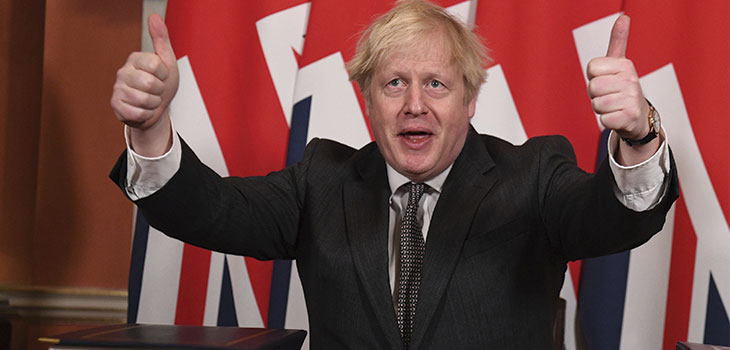
Credit where credit is due. Boris Johnson pulled it off. Many, including this writer, doubted whether a trade deal with the EU could be achieved in a year. I felt all along that we would crash-out without a deal and share the general relief that in this respect we underestimated him.
But Parliament was given only one day to consider the European Union (Future Relationship) Bill—80 pages, 40 sections, 6 schedules—giving effect to the EU-UK Trade and Cooperation Agreement (TCA)—1,246 pages consisting of 410 pages of text and 836 pages of annexes and protocols. Less than five hours in the Commons; something over eight hours in the Lords. No Committee stage in either House. Not a single amendment to the Bill could be moved in either House. Speeches in the Commons limited to four and then three minutes. Speeches in the Lords limited to three minutes. And the Bill was only published the day before it was









